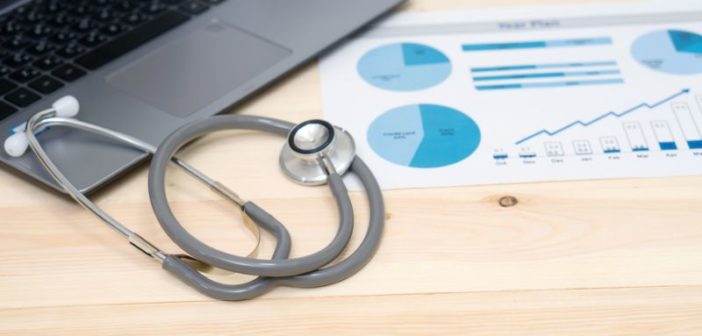We live in an era in which gathering data about anything and everything is becoming easier by the day. The rise and rapid advancements of technology like AI and machine learning have allowed virtually every industry to compile and process data quickly and efficiently, and then utilize it to innovate further changes that improve the quality of our lives.
No modern industry may be more reliant on datasets than healthcare, which outputs an enormous amount of data. As a result, organizing that data and making good use of it can seem like a herculean undertaking, but one that is critical to improving our health and well-being. From helping healthcare organizations function more efficiently to making breakthroughs in reducing disease morbidity and mortality, healthcare analytics can greatly improve the ways patients are assessed, monitored, and treated.
More recently, tech advancements have even allowed patients to get in on the analytics game. From Continuous Glucose Monitors (CGMs) for diabetics to personal health & fitness trackers, millions have found that tracking their own health data has helped them live overall healthier lives.
Goals
The ultimate goal of any healthcare provider or organization is to achieve positive results for their patients. By analyzing patient data, disease analytics, and care data, providers can assess their approach to care, reduce errors and readmissions, and more easily identify patients who may be at risk for certain illnesses or conditions — all of which lead to better outcomes for all parties involved.
Operational efficiency
Providers cannot give the best care if they are working within inefficient systems. Healthcare analytics can do everything from detecting insurance fraud — saving patients and providers money — to analyzing internal processes to make sure organizations are operating at peak efficiency.
Healthcare analytics can also assist with data security, which is a prime concern of patients today. With so much sensitive information passing between patient and provider and provider to provider, having an effective way to monitor threats and detect risks of breach is vital.
Reducing healthcare costs is equally important for everyone involved in healthcare — from providers to managed care organizations (MCOs) to, of course, patients themselves. By analyzing processes and finding more efficient ways of managing organizations, costs can be reduced across the board. For example, healthcare analytics can pinpoint inefficiencies in these processes, allowing organizations to pivot to better approaches and thereby reducing costs.
Insight
Perhaps the most useful role data analytics plays in the realm of healthcare is the vast amount of insight it can provide. Healthcare providers make hundreds (if not thousands) of decisions each day, and data analytics opens the door for informed decision-making. While it’s important to stress that no amount of data collection or analysis can replace the minds of our healthcare professionals, data analytics is a valuable tool for necessary insight.
Modern data-informed insights are available in real time and powered by technology like AI. Patient data, research, and best practices can be combined to guide healthcare providers in making quick but sound decisions for their patients.
Many providers are shifting to a value-based care model, an approach that puts outcomes above the number of patients served. With this quality-over-quantity model, healthcare analytics are significant as providers cannot possibly provide quality-based care without knowing outcome data. With growing interest in this healthcare approach, there will be an increase in demand for robust data analytics that can drive the shift to value-based care.
Early detection
With many serious illnesses, early detection can — quite literally — spell the difference between life and death. Personal patient data that is continuously monitored can help doctors determine if there are signs of a serious illness before the condition progresses too far. If patients are healthy, but their familial and biological data suggest a predisposition to certain illnesses, doctors can then use that data to better monitor their health and catch anything of concern that may arise.
Signs of serious illnesses like cancer can be subtle, and often mimic other less-serious illnesses. Wearable and non-wearable monitoring devices can assist in gathering data that can help providers determine whether or not signs are worth being concerned about.
Final thoughts
Data analytics within healthcare is a field that is constantly growing, advancing, and changing. Organizations need to recognize that today’s medical landscape is data-driven and prepare to integrate strong data collection and analysis devices and processes for the betterment of operational efficiency, insights, detection, and patient outcomes.
The healthcare industry now finds itself poised to obtain the most out of the incredible advancements happening within data analytics. With recognition of the large amounts of significant data available, innovation in its collection and analysis will help healthcare organizations improve the industry, allowing patients to expect better service, care, and outcomes.
To learn more about Tricorder.Zero, visit the website HERE.
Related News:
How Healthcare Technology Shapes the Lives of People with IDD
Samsung Partners with Universities and Hospitals Creating a Digital Health Ecosystem

